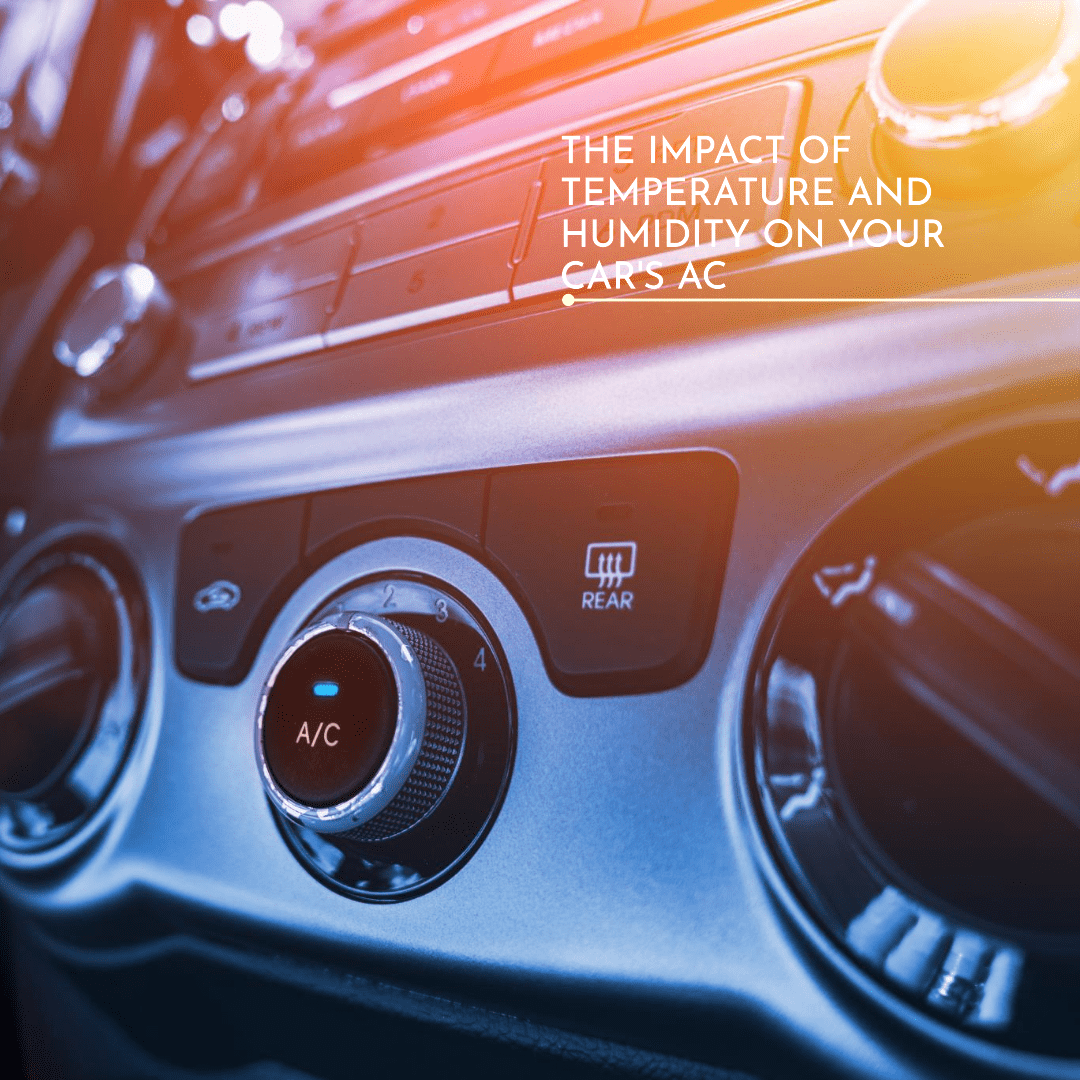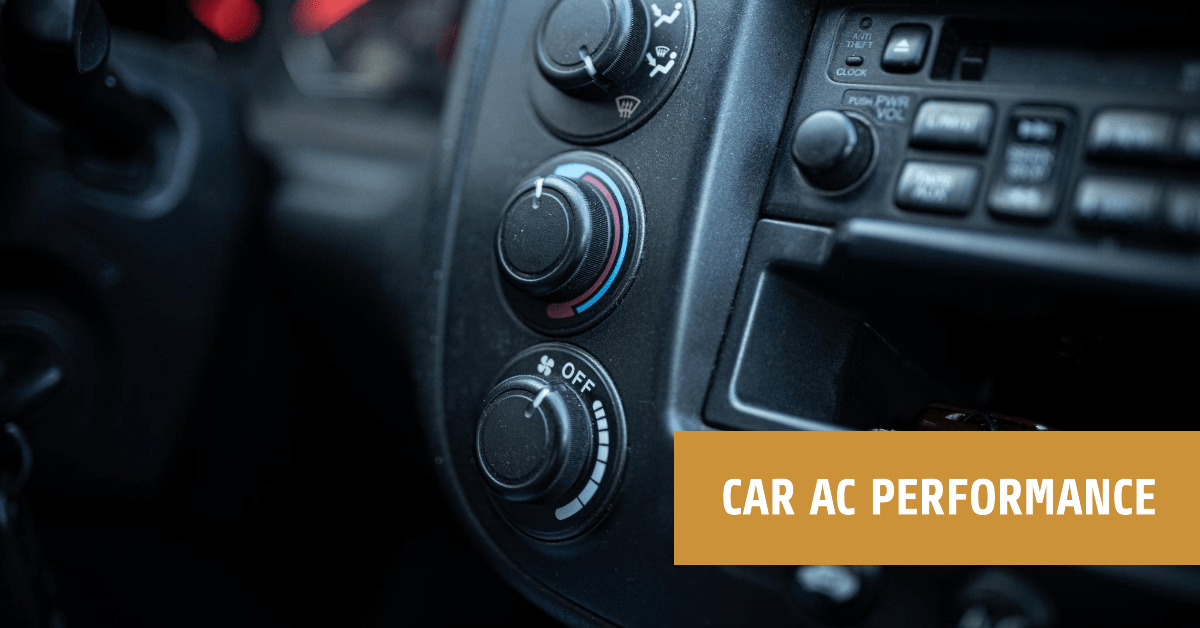During a heat wave or high humidity, your car’s AC system may not work as effectively due to the extra pressure from the hot outside air. This results in slightly warmer air blowing from the vents, but there’s no need to worry, as it’s a normal occurrence.
The AC’s condenser is responsible for transferring heat from the hot refrigerant to the cooler outside air. In a heat wave, the already hot outside air makes it challenging for the refrigerant to cool down, leading to slightly warmer air inside the car.
Additionally, high humidity levels also impact the AC’s performance, as it has to work harder to remove moisture from the air, affecting overall cooling efficiency.

Refrigerant Performance Depends on the Environment
Refrigerant is the magical substance circulates through a closed-loop system, absorbing heat from inside your car and releasing it outside. But its effectiveness depends heavily on the external environment.
When it’s blistering hot outside, the refrigerant faces higher pressure and needs to work harder to cool your car’s interior. On the other hand, on cooler days, it can work more efficiently, chilling the air with ease.
Testing AC System in Two Temperature
To understand this dance between temperature and AC performance, let’s conduct a little experiment. We’ll test the AC system in two contrasting environments – a scorching day with the mercury soaring and a pleasantly cool day with a gentle breeze. First, buckle up for our sizzling ride!
Testing the AC on a Hot Day
Imagine a scorching summer day where the temperature outside is a blistering 95°F (35°C) in the shade. You step into your car, and it feels like an oven. You crank up the AC to full blast, hoping for instant relief.
The AC’s refrigerant feels the pressure, quite literally! It has to work extra hard to cool your car’s interior against the intense heat outside. As a result, you might experience a slight delay in getting that icy blast of air.
Now, let’s see what happens when the AC faces a different environment.
Testing the AC on a slightly Cool Day
On a cooler day, say around 75°F (24°C), your car’s AC performs with more finesse. The refrigerant doesn’t have to endure as much pressure, allowing it to cool your car’s interior more efficiently and quickly. You get that refreshing breeze in no time.
Also Read: What’s the Difference Between Car Detailing and Car Wash
Humidity’s Role in Car AC Performace
Temperature isn’t the only player in this performance; humidity also takes center stage. Humidity refers to the amount of moisture present in the air, and it has a significant impact on how we perceive heat.
High Humidity and AC
Imagine a humid day where the humidity levels soar above 80%. And the sweat on your skin doesn’t evaporate effectively, making you feel hotter than the actual temperature.
Now, when you turn on your car’s AC, it has to combat with high external temperature and humidity. The AC’s dehumidification function kicks in, and it has to remove excess moisture from the air inside your car, adding an extra load on the system.
The Perfect Harmony
On the other hand, when the humidity is relatively low, around 30-40%, the AC can focus more on cooling without expending much effort on dehumidification. The result? You get that blissful, dry coolness that makes you forget about the sweltering world outside.
About Us
If your car’s air conditioning is being affected by the temperature and humidity, don’t hesitate to reach out to Dubai Car Recovery for reliable car AC repair services. Feel free to call us at +971505073124. We are here to help!





